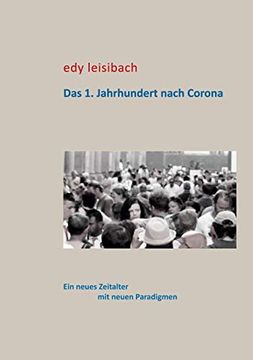The 1st Century After Corona: A New Age with New Paradigms (en Alemán)
Reseña del libro “The 1st Century After Corona: A New Age with New Paradigms (en Alemán)”
The emergence of the Covid-19 virus has changed our world. Are we facing a new era with necessarily new paradigms? Will the world be different after Corona? Will there ever be normality again? The book takes a critical look at what has happened so far and comes to the conclusion: A lot of things in our society are going well and mean progress, prosperity and a fulfilled life. We have created a high culture that we can be proud of. But there are elements that threaten to become excessive and are on the verge of dragging all our progress into the abyss, as was the case in earlier advanced cultures. Every advanced culture has collapsed again, out of arrogance, out of arrogance, often because of small undesirable developments. Is our advanced culture also at this turning point? If so, what undesirable development will bring about the downfall of our culture? Can we recognize this undesirable development in time and counteract its downfall? Is our society drifting into a deadly dead end of confusing financial structures, political bankruptcy declarations, Darwinism of the globalized economy, consumerism and greed? Does the little corona virus want to lead us to a different, more survivable form of civilization? Did we take our luxury train onto the wrong track? The Corvid-19 pandemic acts like an emergency brake and calls on the world to pause. Progress is not a restless rush along. Progress means pausing, continually searching for the right path, just as a hiker corrects the path in pathless terrain before the abyss inevitably stands in front of him. Does the Covid-19 virus ask us to look critically at our actions? The aim is not to keep doing more of the same thing, but rather to create new things and change old things. It is not those who have that are valuable, but rather those who make a sustainable and holistic impact. Greed must not remain the basis of our actions. The book thinks approaches


